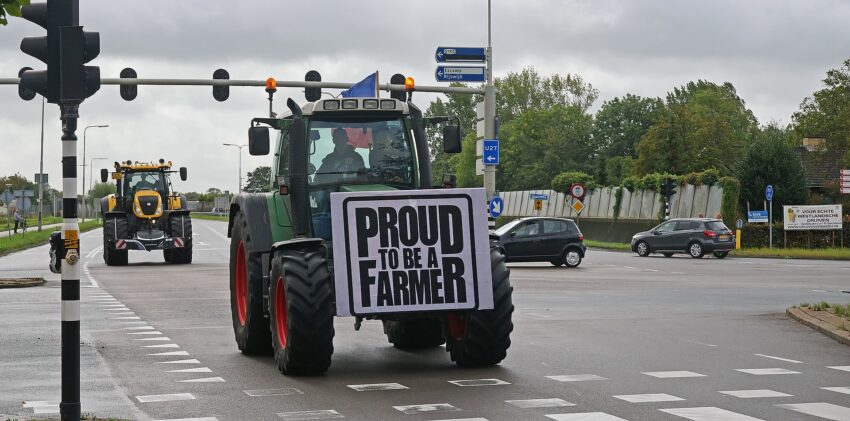The Netherlands, known for its picturesque tulip fields and efficient agricultural practices, has recently become the epicenter of a major protest movement. Dutch farmers have taken to the streets, the highways, and other public spaces in a show of defiance against what they see as unfair and damaging climate change policies.
Dutch farmers message to Mark Rutte: "The protests will continue, we have the support of millions of people, there will be actions that Holland has never seen before."#TheGreatResist pic.twitter.com/w8tkbQL6ck
— Ex_Supra 🇮🇪 Q애국자🇭🇺🇰🇿 (@Ex_Supra_9) July 10, 2022
The Grievances of Dutch Farmers
At the heart of the Dutch farmers’ protests are concerns over new government regulations aimed at reducing nitrogen emissions. These regulations, part of the Netherlands’ ambitious climate change goals, are seen by many farmers as a direct threat to their livelihoods. The government, following the WEF green agenda, has set a target to halve nitrogen emissions by 2030, a move that could force many farms to shut down or drastically reduce their livestock.
Farmers argue that the proposed measures are disproportionately harsh on the agricultural sector. They claim that while industries like transportation and construction also contribute significantly to nitrogen emissions, the burden of reducing these emissions has been placed almost entirely on farmers. This, they say, is unfair and could lead to the loss of thousands of jobs.
Moreover, the Dutch government has allocated a significant amount of money to help farmers transition to more sustainable practices or to buy out those who cannot adapt. However, many farmers see this as a form of coercion, a forced choice between changing their practices or losing their farms.
The reduction in livestock numbers and the closure of farms could lead to a significant decrease in agricultural output. The Netherlands is a significant exporter of agricultural products, and any reduction in production could have global implications.
Lessons for American Farmers
The situation in the Netherlands serves as a cautionary tale for American farmers. As the United States continues to grapple with its own climate change policies, it’s crucial for farmers to pay attention to the potential impacts of these policies on their livelihoods.
American farmers, like their Dutch counterparts, could face similar challenges if climate change policies are not carefully considered and implemented. The Dutch protests highlight the need for balanced and fair regulations that do not disproportionately burden the agricultural sector.
Furthermore, the Dutch situation underscores the importance of involving farmers in the policy-making process. Farmers’ voices need to be heard and their concerns addressed to ensure that policies are effective and do not lead to unintended consequences.
The Dutch farmer protests serve as a stark reminder of the potential impacts of climate change policies on agriculture. American farmers should take note and advocate for policies that are fair, balanced, and consider the unique challenges faced by the agricultural sector.


